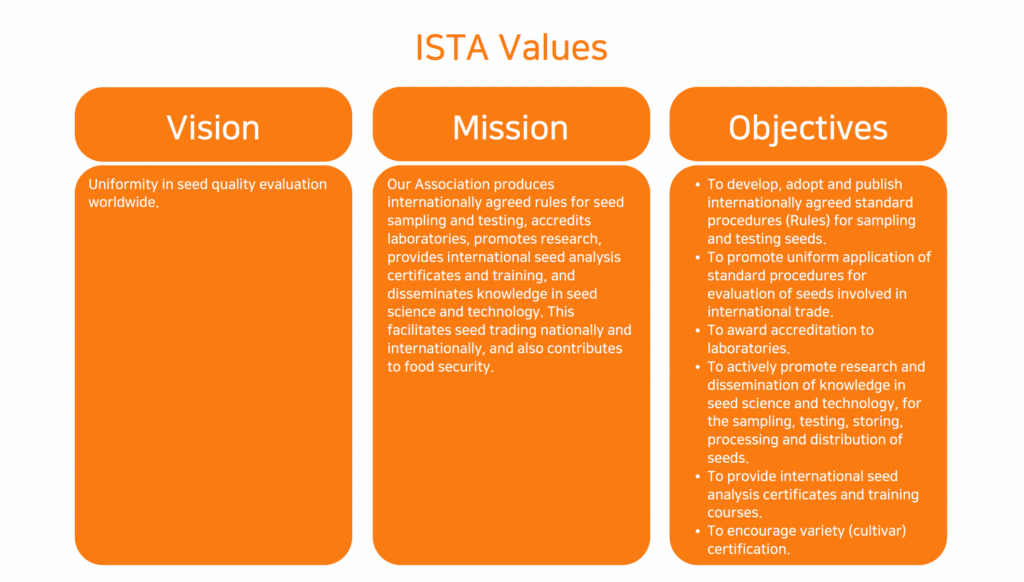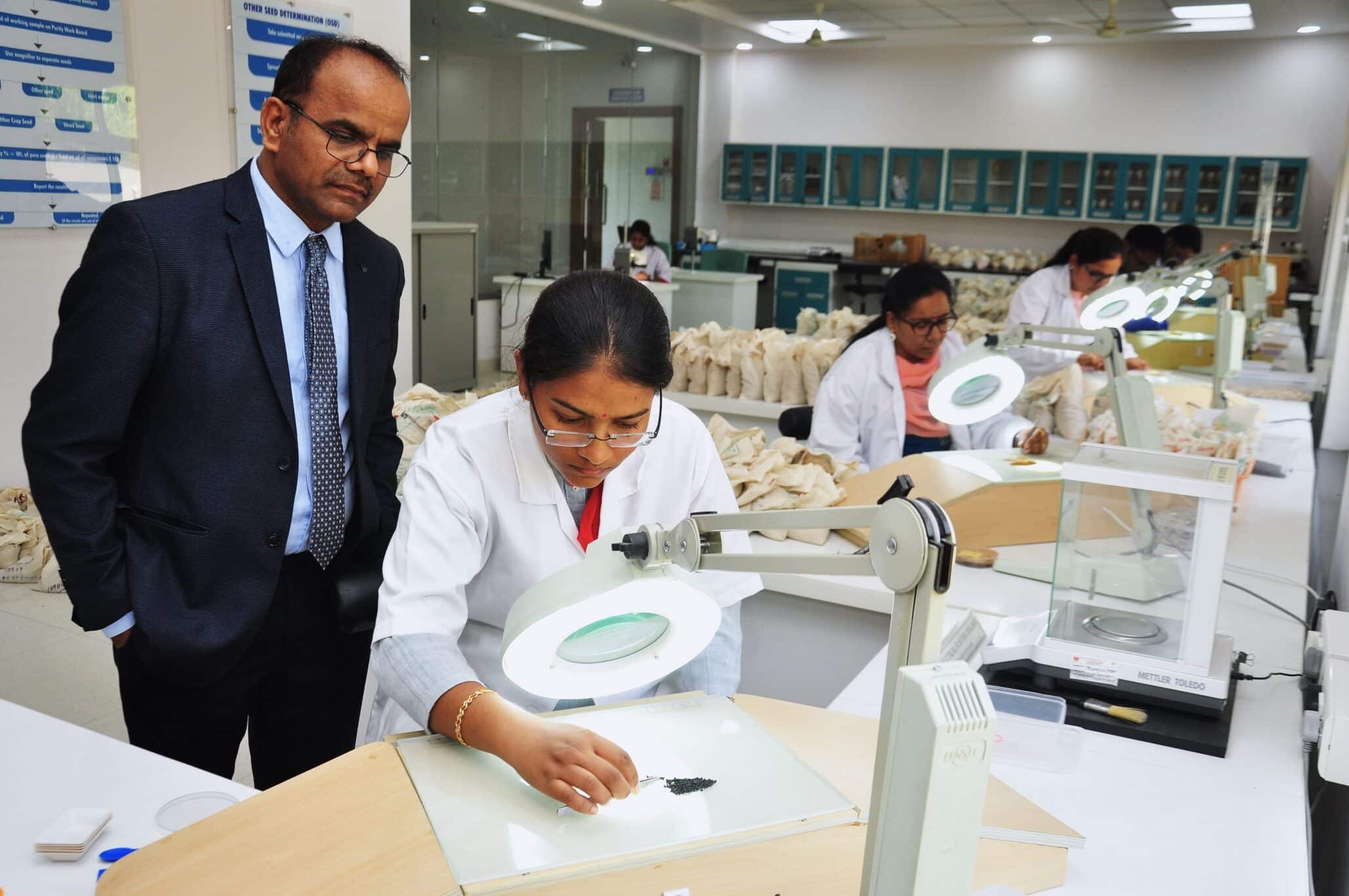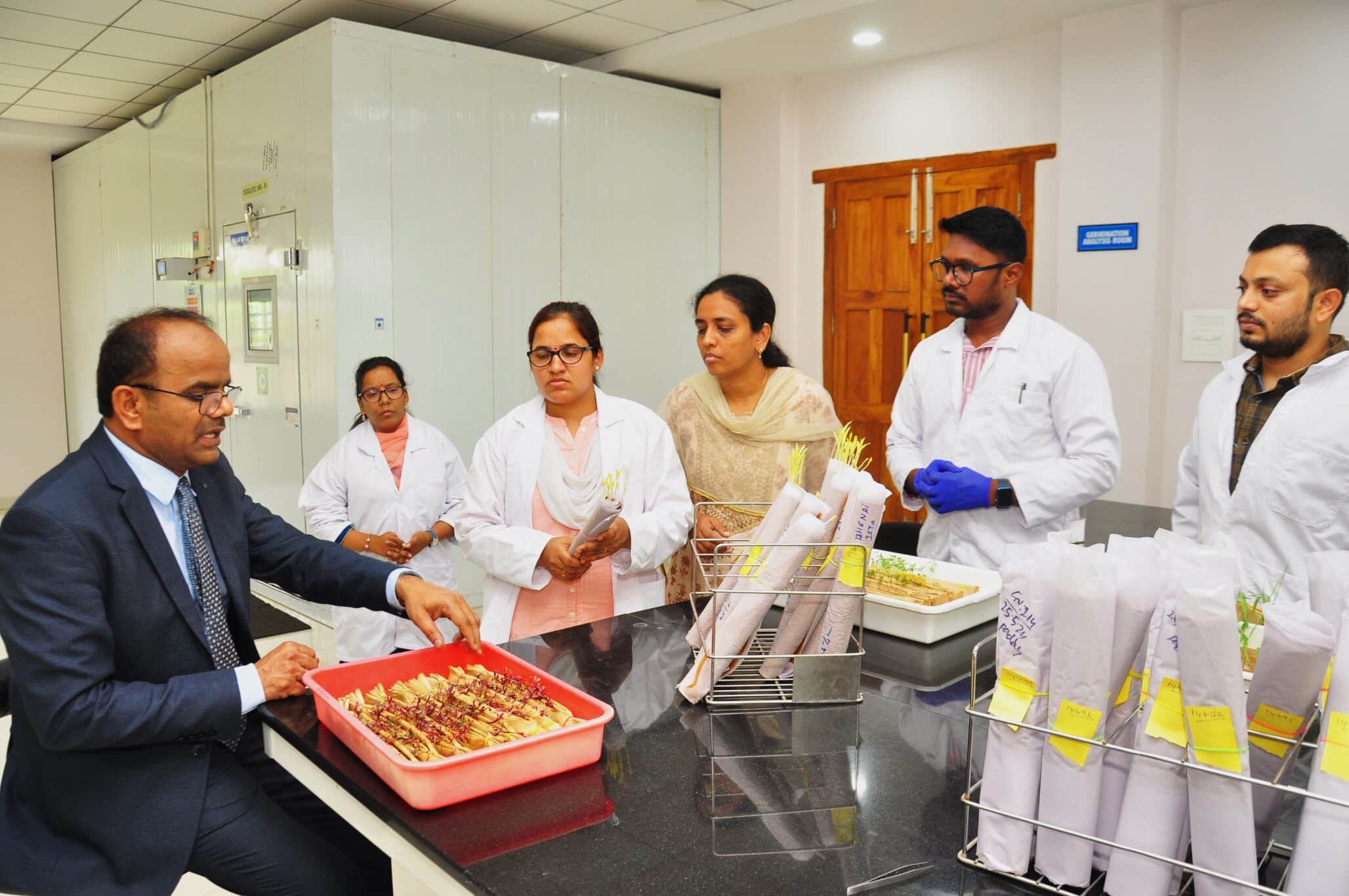2024 marks the International Seed Testing Association’s 100th birthday. The impact ISTA makes on the global seed trade is nothing short of critical.

Founded in 1924 in Cambridge, England, the International Seed Testing Association (ISTA) is inextricably linked with the history of seed testing.
Today, Member Laboratories and Sampling Entities, Personal Members and Associate Members represent over 80 countries worldwide.
The Association’s main purpose is to develop, adopt and publish standard procedures for seed sampling and testing and to promote uniform application of these procedures for evaluating seeds moving in international trade.
The secondary purposes of the Association are to actively promote research in all areas of seed science and technology (including sampling, testing, storing, processing and distributing seeds), to encourage variety (cultivar) certification, to participate in conferences and training courses aimed at furthering these objectives, and to establish and maintain liaison with other organisations having common or related interests in seed.
As an authority in seed science and technology, ISTA continues its role as the developer of seed testing methods.
Briefly, its major achievements to date include the following:
- Developing the ISTA International Rules for Seed Testing, which provides annually updated uniform seed testing methods worldwide;
- Delivering the ISTA Accreditation Programme, which includes the accreditation standard, proficiency testing and auditing, guaranteeing worldwide harmonised seed testing results;
- Issuing (exclusively via ISTA accredited laboratories) ISTA International Seed Analysis Certificates, which truly reflect the quality of each seed lot; and
- Promoting research, training, publishing and information in all areas of seed science and technology, as well as cooperating with related organisations.














